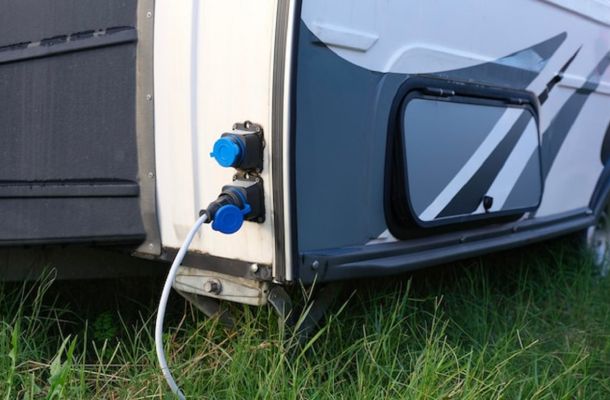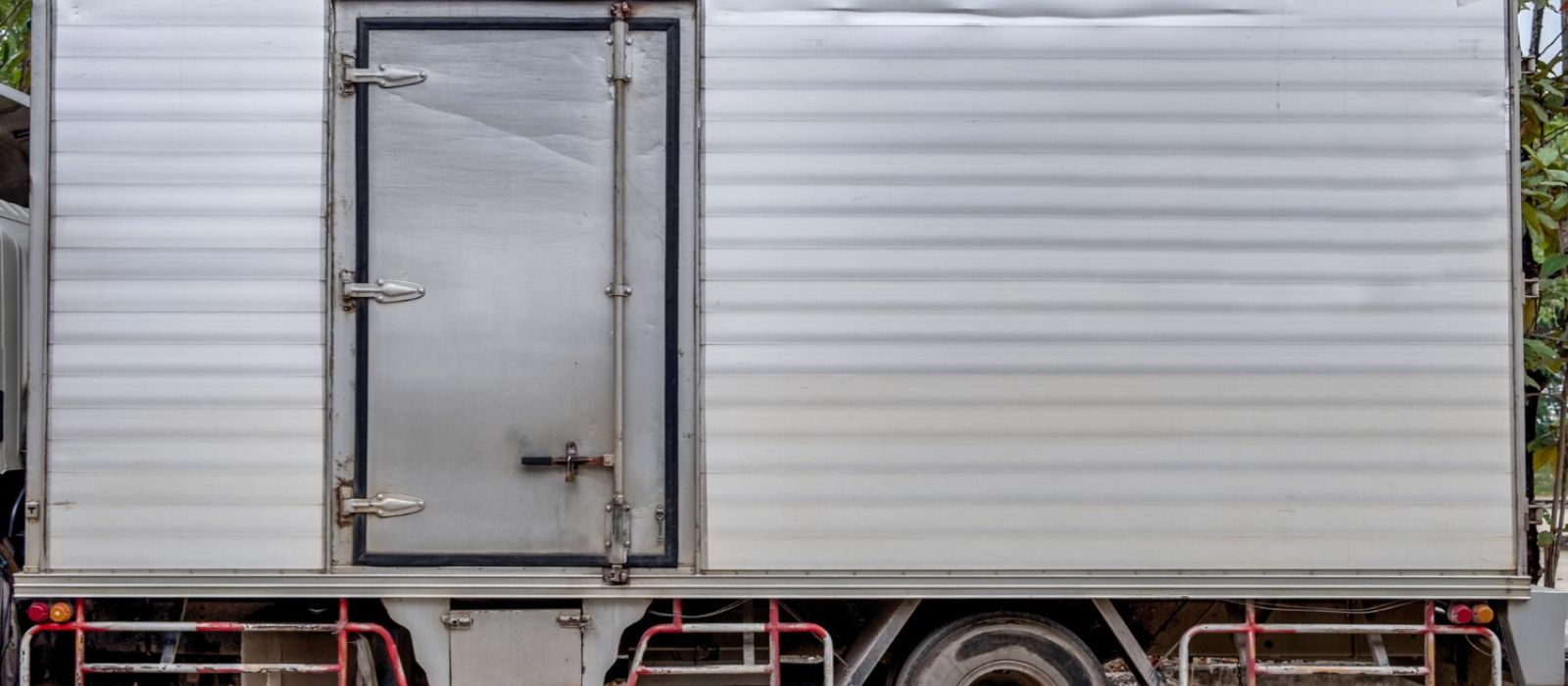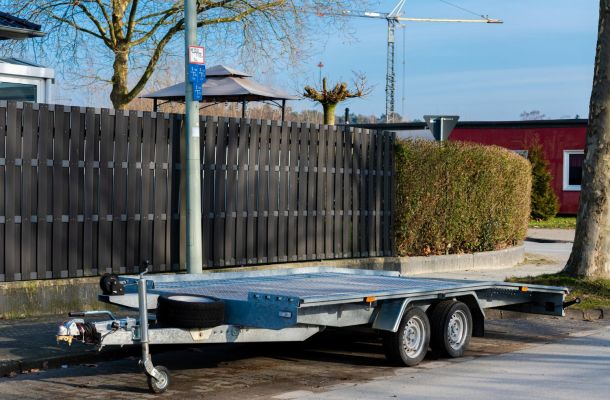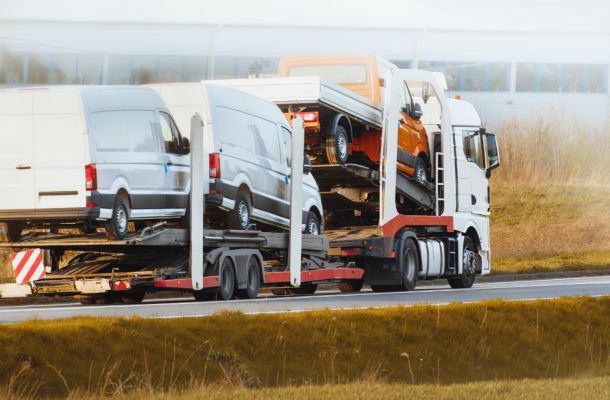
Solving Ventilation Problems in Enclosed Trailers

If you’ve ever opened up an enclosed trailer in the middle of a warm Albuquerque afternoon and felt like you stepped into a sauna, you’re not alone. Heat and humidity can build up fast inside an enclosed space, especially when airflow is limited. Whether you’re hauling tools, equipment, or personal items, poor ventilation can quickly become a problem you can’t ignore.
Good ventilation isn’t just about staying cool. It helps protect your cargo, reduce moisture, and prevent damage to the inside of the trailer. If the air can’t flow out properly, it can lead to mold, bad smells, and warped materials. For folks using enclosed cargo trailers in Albuquerque, where temperature swings are common, keeping air moving inside your trailer just makes sense.
Common Ventilation Issues in Enclosed Cargo Trailers
Enclosed trailers naturally trap air. Without built-in circulation, that air becomes stale, hot, and sometimes damp. That’s where problems start. Ventilation problems don’t always show up right away, but over time, they can create heavy wear on both the trailer and whatever you’re hauling.
Here’s what typically goes wrong:
- Heat buildup. During the day, especially in fall when the New Mexico sun still packs heat, the temperature inside can rise fast even if it feels cooler outside. Metal surfaces soak up sunlight and turn that small space into an oven.
- Humidity and condensation. Even in dry climates like Albuquerque, enclosed spaces can trap moisture. Spilled drinks, wet tools, or even breath from animals if you’re transporting pets can all add moisture to the air. If there’s no escape for that moisture, it settles on walls and ceilings, eventually turning into condensation.
- Mold and air quality. That trapped moisture leads right into mildew and mold growth. Air that feels damp or smells musty after a trailer’s been sealed for a night or two is a clear sign there’s a problem. This is especially bad if you’re transporting things that soak up odor or moisture like fabric, cardboard boxes, or wood.
These issues don’t go away on their own. Over time, your trailer might start to show signs of wear from the inside out. Wooden interiors can rot. Metal can rust. Even the walls might start to warp. It’s not just uncomfortable, it puts your investment at risk.
Identifying Signs of Poor Ventilation
You don’t need special equipment to spot ventilation trouble. Most of the clues are easy to notice if you watch closely.
Here are a few warning signs that your trailer isn’t breathing properly:
1. Condensation on walls or ceilings
If you open the trailer door and spot water droplets running down the inside walls or dripping from the ceiling, that’s a sign of trapped moisture. With nowhere to escape, it builds up and clings to surfaces.
2. Musty or damp smells
Bad smells often come from mold or mildew hiding out of sight. A trailer should smell like dry air or whatever you’re hauling. If you catch a whiff of something musty, check the dark corners and underneath mats.
3. Goods are affected
If your cargo shows up feeling damp, hotter than usual, or has signs of moisture damage, airflow might be the problem. Electronics, tools, wooden items, and fabrics are all sensitive to this.
4. Visible mold or rust spots
Take a close look in corners, below floor mats, or near screws and seams. These still spots are where moisture likes to hang out and where problems can begin.
5. Wall warping or discoloration
Hot cycles and extra humidity can affect your trailer’s interior. Warped panels, stained insulation, or faded or peeling wallboards might point to ventilation failure over time.
If any of these sound familiar, it’s time to start thinking about better ways to move air through your trailer. In the next section, we’ll take a look at what can be done to help fix the issue and protect your cargo.
Solutions to Improve Ventilation
Once you’ve spotted airflow problems, the next step is fixing it. Many enclosed cargo trailers in Albuquerque are built for tight sealing, which unfortunately makes it easier for heat and moisture to stay trapped. The good news is there are several ways to open things up and keep air moving better.
Here are some options that can help:
– Add roof vents or side vents
Roof vents help hot air rise and exit through the top of the trailer. Side vents bring in fresh air and allow for natural circulation. When installed together at the front and rear, they create a simple but effective airflow system that keeps temperatures in check.
– Install powered ventilation fans
Fans, either battery-powered or wired, help create constant airflow regardless of outdoor conditions. These are helpful when hauling cargo that creates moisture or is sensitive to heat. They’re especially good for trailers used every day or hauling animals, fabric goods, or camping gear.
– Use portable dehumidifiers or moisture absorbers
Even in dry areas like Albuquerque, moisture can sneak into an enclosed trailer. Small dehumidifiers or moisture control packs can help pull water from the air and slow mold growth before it starts.
The kind of cargo you carry makes a difference here. People hauling tools will need different ventilation compared to someone transporting furniture or pet supplies. If you’re someone converting the trailer into a camper, you’ll want to think about longer-term airflow. No matter the use, adding airflow now helps avoid big damage later and keeps you more comfortable when you step inside.
Choosing the Right Ventilation System for Your Trailer
Picking the best setup depends on several factors. Not every solution works for every trailer, but the right combination will get the job done effectively.
Think about the following when making a choice:
– Trailer size
Bigger trailers hold more air, which often means more vents or stronger circulation systems. Smaller ones might need fewer features, but still require airflow to keep from overheating.
– Type of cargo
Dry goods and tools work fine with passive ventilation. But if you’re hauling moisture-creating or temperature-sensitive cargo, you’ll likely need something more active like a powered fan or added vents.
– How often it’s used
If you’re using your trailer daily or leaving it out in full sun, you’ll likely need more airflow. If it sits for long stretches, it still needs some ventilation to avoid mold or poor air conditions even while not in use.
– Seasonal climate in Albuquerque
Fall in Albuquerque carries warmth well into the season. Trailers can still overheat or trap moisture, so installing a dependable airflow system is worth the effort. For those using their trailer through winter or into early spring, it helps to plan for those conditions in advance.
Professional installation helps make sure everything is sealed properly and working as it should. That way, you avoid leaks or damage and get peace of mind knowing the job was done right.
Keeping Your Trailer Ventilation in Top Shape
Once your trailer is outfitted with vents, fans, and moisture blockers, the job isn’t quite finished. Regular maintenance helps everything keep working year-round.
Here are a few easy ways to stay on top of it:
– Inspect vents and fans before trips
Make sure the vents are open and unblocked by tools or gear. For powered fans, check that the connections are secure and the blades spin freely.
– Clean vents once a month
Road dust, leaves, and small debris can block airflow without you noticing. A simple rinse or wipe keeps things clear, especially if your trailer parks under trees.
– Keep weather in mind
Fall weather in Albuquerque can come with dry heat one day and cool moisture the next. Check vent covers for cracks or leaks as seasons change making sure rainwater can’t get inside.
– Check for signs of wear
If you see broken covers, old wiring, or rust creeping in, repair or replace parts before your next haul. A quick fix now is easier than a big cleanup later.
A bit of care every now and then keeps your trailer in better shape, prevents bigger costs down the road, and keeps you ready for whatever you need to haul next.
Preparing for a Smooth Haul with Proper Ventilation
When enclosed cargo trailers in Albuquerque are set up with the right airflow, everything just works better. You avoid damage to your cargo, your trailer lasts longer, and loading or unloading is more comfortable.
Good airflow doesn’t need to be complicated, but it does need to be handled right. If you’re putting in the time to maintain or upgrade your trailer, ventilation is a smart place to focus. Even small changes can make a lasting difference in how your trailer feels and performs.
Ready to make the most of your hauling setup? Get the right airflow upgrades for your enclosed cargo trailers in Albuquerque with help from New Mexico Trailer Depot. Whether you’re hauling gear, tools, or valuables, our expert team offers professional ventilation solutions to keep your trailer protected and your cargo safe. Learn more about your options and next steps by exploring our enclosed cargo trailers in Albuquerque.

